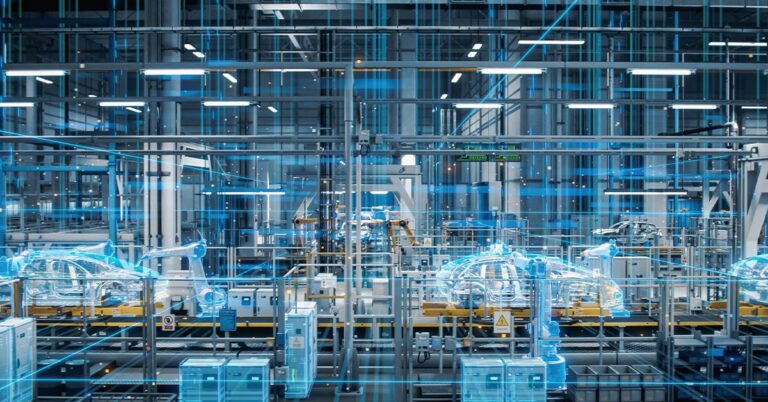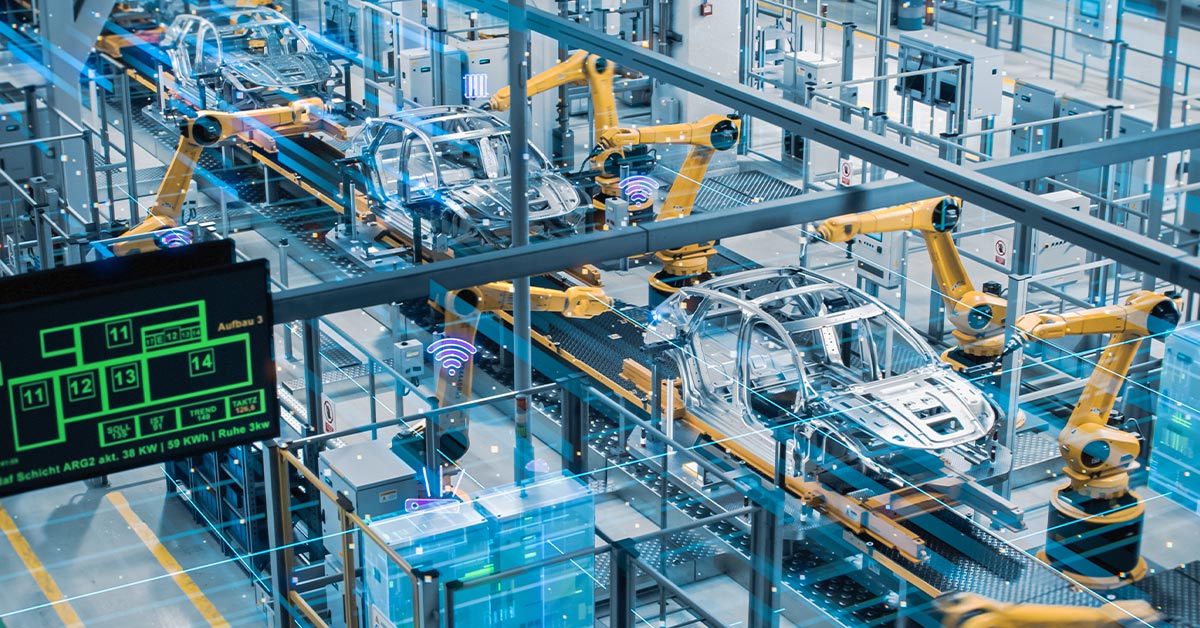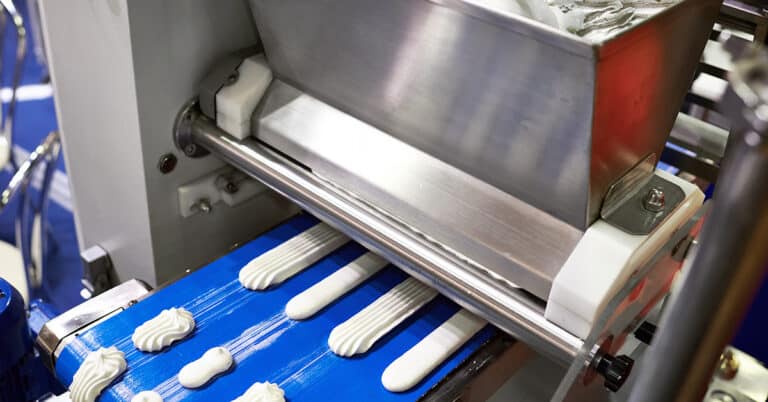In many ways, the modern automotive industry is only possible thanks to automation. Amazingly, automation technology — which, by some measures, has been around for more than a century, starting with the introduction of the production assembly line — continues to evolve today. Artificial intelligence, or AI, is one of the key technologies behind this evolution, providing benefits on a much greater scale in many of the same areas that that first assembly line did:
- Increased efficiency
- Higher quality and accuracy
- Safety improvements
- Higher-value tasks for workers
Of course, there are also some areas where AI is making a positive impact that those earliest phases of automation couldn’t have touched, such as the supply chain, remote collaboration and more. In this article, we will explore the evolution of AI in car manufacturing and the benefits that this technology continues to provide.
The evolution of AI in auto manufacturing
Because automation is such an inextricable part of auto manufacturing, the industry was quick to adopt even the earliest implementations of AI technology, at its most rudimentary level. As digital transformation in the automotive industry began to gain a foothold, AI started providing benefits like simple sorting of parts and pieces with vision systems, basic advances in data and analytics for equipment performance assessments, and enhancements for maintenance scheduling and implementation.
Like many digital technologies, AI has made exponential advances and is now used for an increasing number of applications, with the ways in which it can support automotive manufacturing continuing to grow. AI in automotive manufacturing is now an integral part of everyday operations, boosting productivity and effectiveness in production, maintenance, R&D and other areas.
Ways AI is changing auto manufacturing

With the continued expansion and development of AI, car manufacturing as a whole is changing, becoming more productive and efficient, while workers make increasing use of technology to complete high-value tasks. Artificial intelligence in automotive manufacturing is making a difference in:
- Equipment monitoring: As industrial sensors become more affordable and accessible, manufacturers now have access to vast stores of data that can help make significant improvements in maintenance effectiveness. AI can help to make sense of this data, supporting the benchmarking and decision-making that drive highly efficient maintenance practices such as predictive maintenance. By introducing artificial intelligence into equipment monitoring, manufacturers can vastly reduce or even eliminate unplanned downtime, while also enabling more targeted maintenance planning and scheduling.
- Robot and human collaboration: Robot automation has long played a role in automotive manufacturing, performing the most undesirable tasks — those identified as dull, dirty and dangerous. While that early form of automation provided raw speed and efficiency benefits, it also introduced new caveats and roadblocks into the process: Automated and manual processes needed to be completely separated, workers could not safely work near automation equipment and complex processes continued to be performed completely by hand. AI advances have facilitated the development of collaborative robots, or cobots — automation equipment that is designed to work directly alongside human workers, creating efficiencies in the highest value, most complex tasks, improving safety, and fostering increased integration between automated and manual processes.
- Improved production quality: From the production line to the QC staging area, artificial intelligence is helping to improve the output quality of automotive production equipment. AI can help to guide and adjust production equipment in real-time to maintain close tolerances and high accuracy standards, and can assist quality control personnel in identifying defective parts, as well as using historical QC data to detect potential production anomalies.
- Increased productivity: AI has the ability to create efficiency improvements in every area of manufacturing, even those that previously had not been able to benefit from automation. By taking advantage of incremental efficiency opportunities, AI can drive increased productivity and reduced costs at a large scale.
- Optimized supply chains: Applying AI to supply chain and inventory processes can help take major steps towards optimal efficiency in these areas. AI can incorporate macro data such as global economic trends, weather forecasting and geopolitical factors with more granular data such as inventory needs, spare part usage and maintenance trends to drive more targeted and effective supply chain decision-making.
How automotive facilities are investing in AI
Automotive manufacturing facilities continue to be at the forefront of automation by investing in AI for areas like:
- Using AI for the most important projects: In an economic landscape where productivity and ROI are of paramount importance, it makes sense to focus AI technology on the highest value, most critical needs, not those that are only of incidental importance. Taking this vanguard approach can lead to unprecedented advances in innovation, productivity and efficiency, ultimately helping to prove the value of AI investment.
- Working with AI development partners: AI in manufacturing demands a host of new skill sets, including many that may not have previously been prominent in the sector. Working with development partners can help manufacturers ease the burden of hiring and training while ensuring a high level of quality in AI implementations.
- Utilizing industry knowledge to “feed” AI: While in-house industrial sensors and monitoring devices are able to provide a wealth of information for AI to “learn” from and act upon, this technology can become even more effective with the support of industry expertise. This is an area in which the synergy of people and technology can illustrate its full potential, combining the power of data analytics with the irreplaceable benefits of lived experience in the field.
- Storing data and digital twins: As AI modules collect more data, they become increasingly efficient and effective, eventually facilitating the use of technology such as digital twins: virtual representations of real-world products and processes. Digital twins are making a positive impact in R&D, automotive industrial maintenance, collaboration, innovation, training and more, enabling engineers and technicians to accurately gauge the effectiveness of new concepts and techniques with little to no risk.
With this understanding of AI and its applications in the automotive industry, you are now ready to explore the potential of this technology in your own operations. ATS offers deep expertise in predictive technology in the automotive industry, and we are ready to discuss your needs and how we can help. Contact us to learn more.






